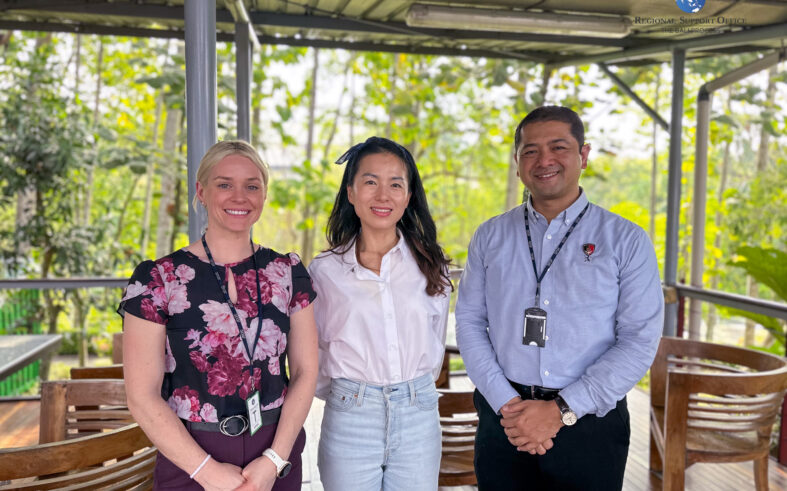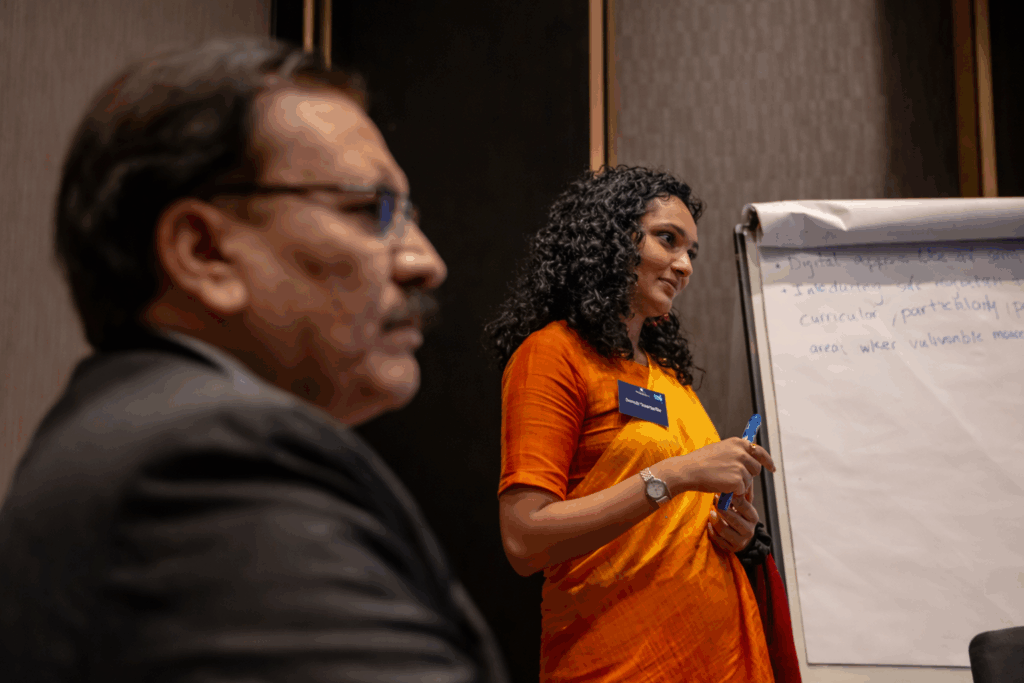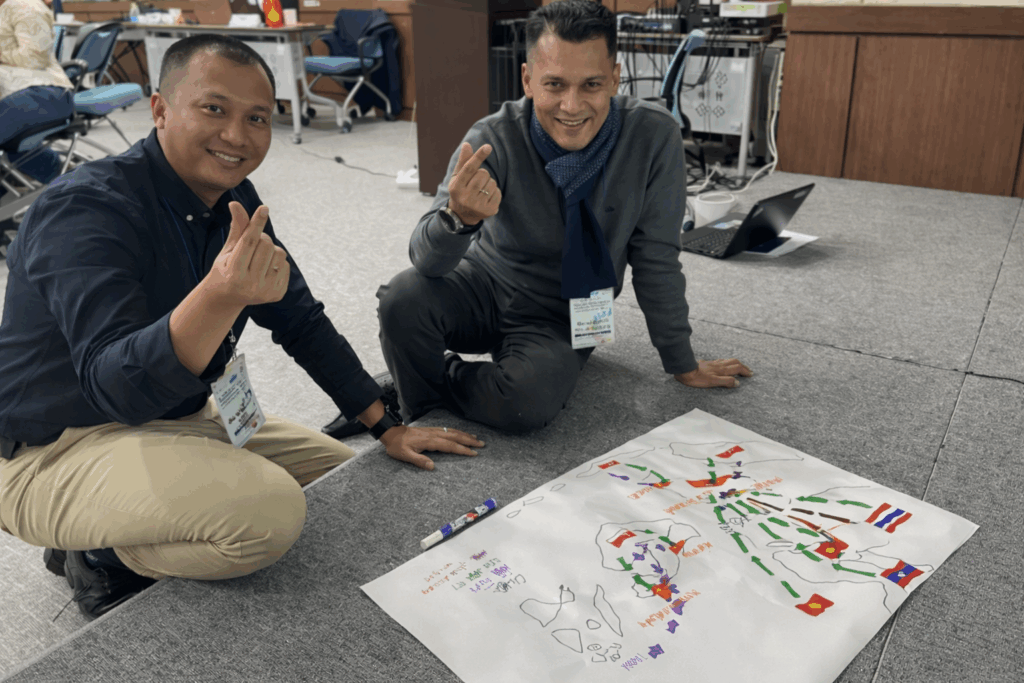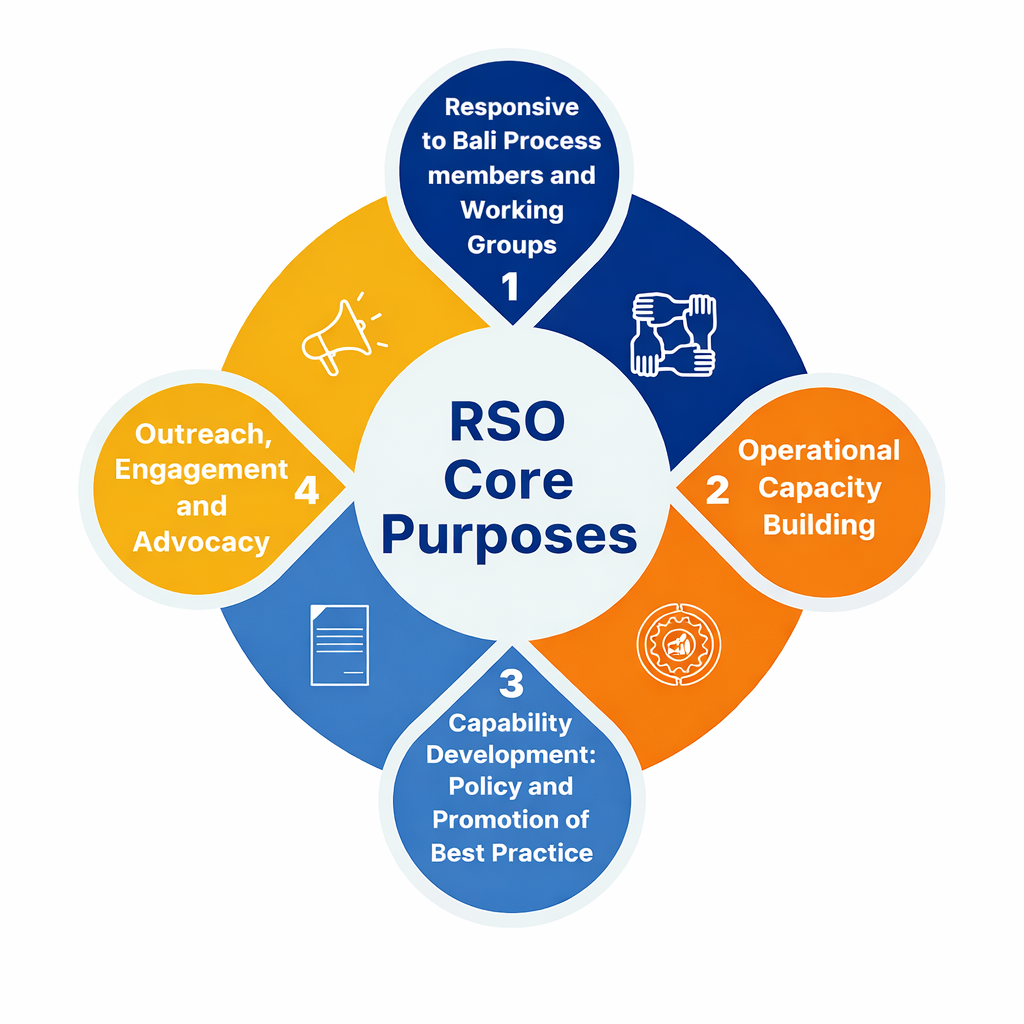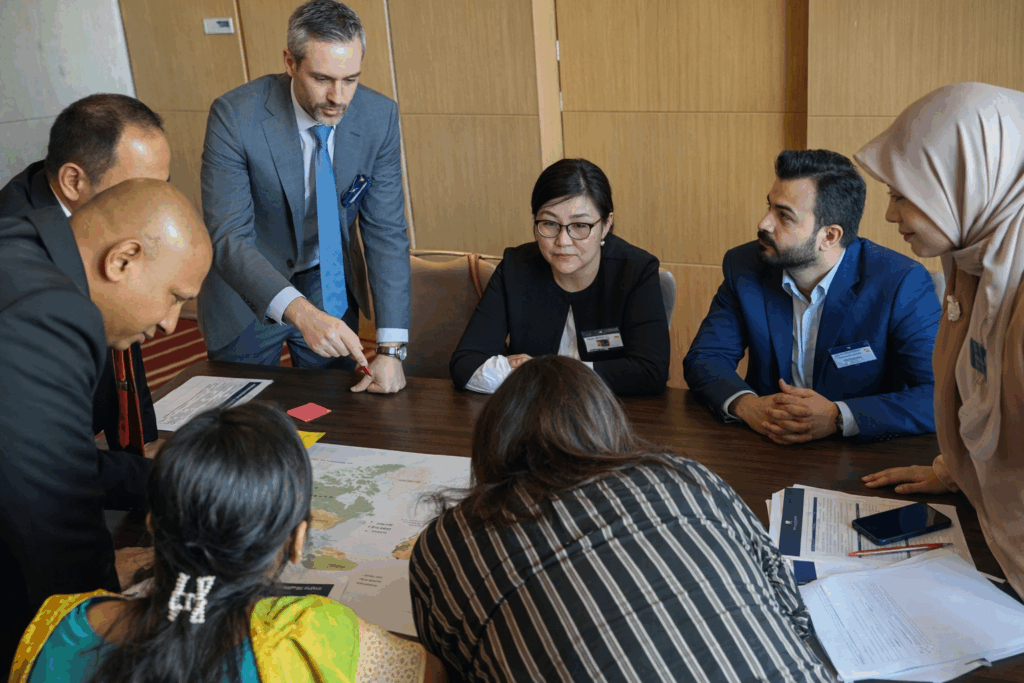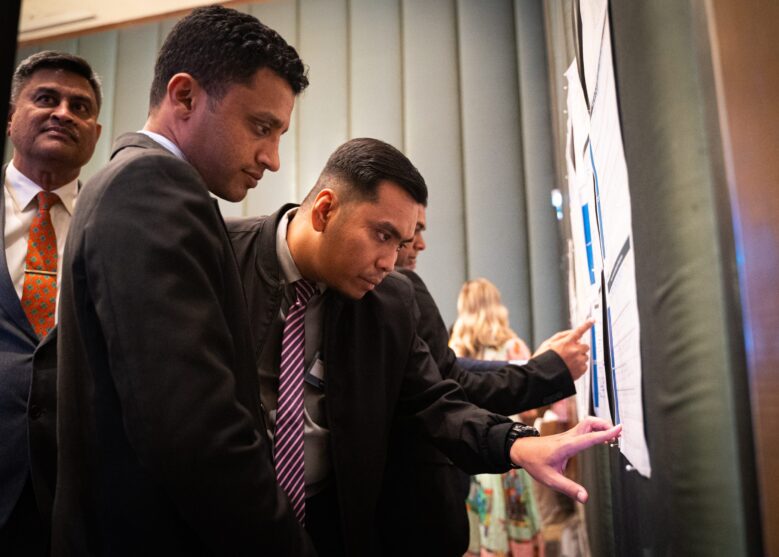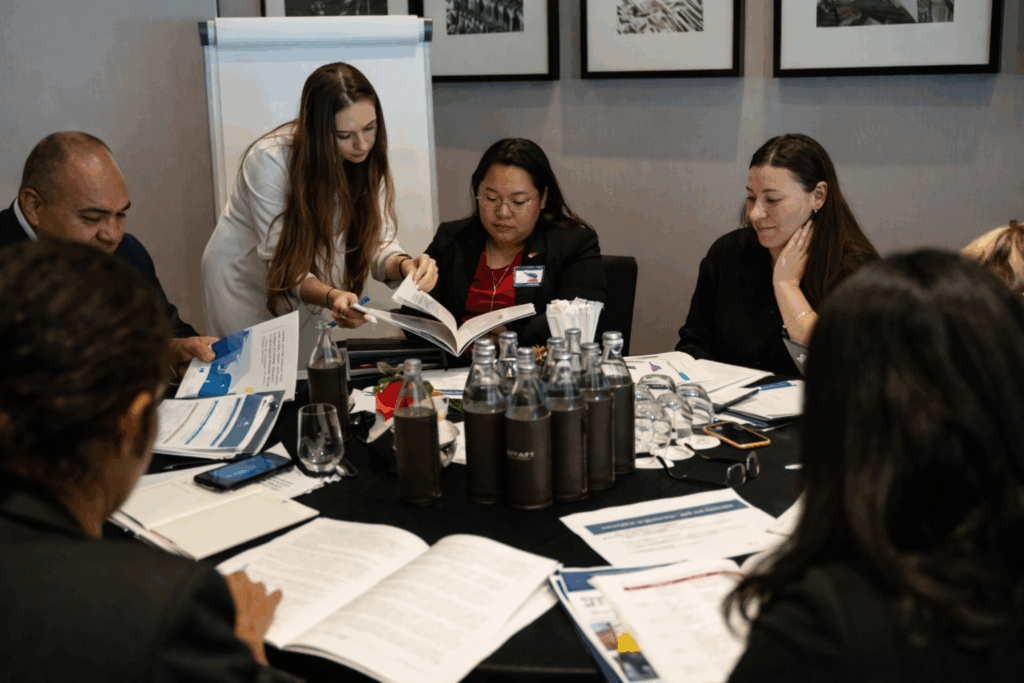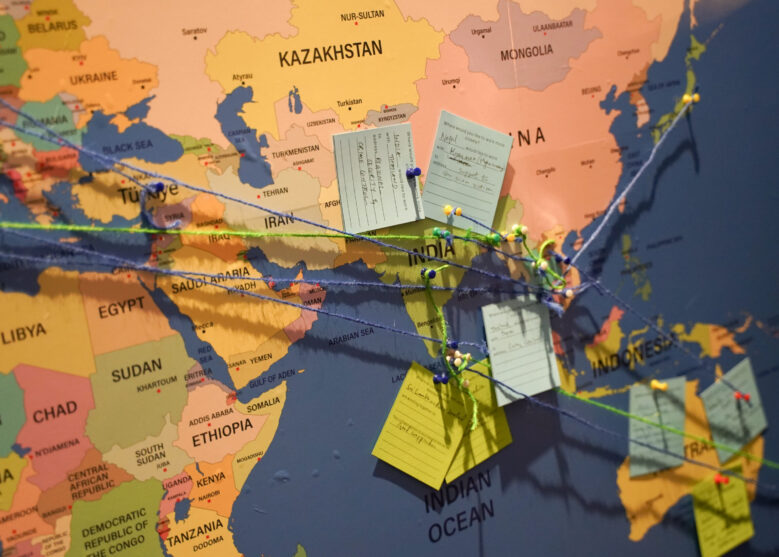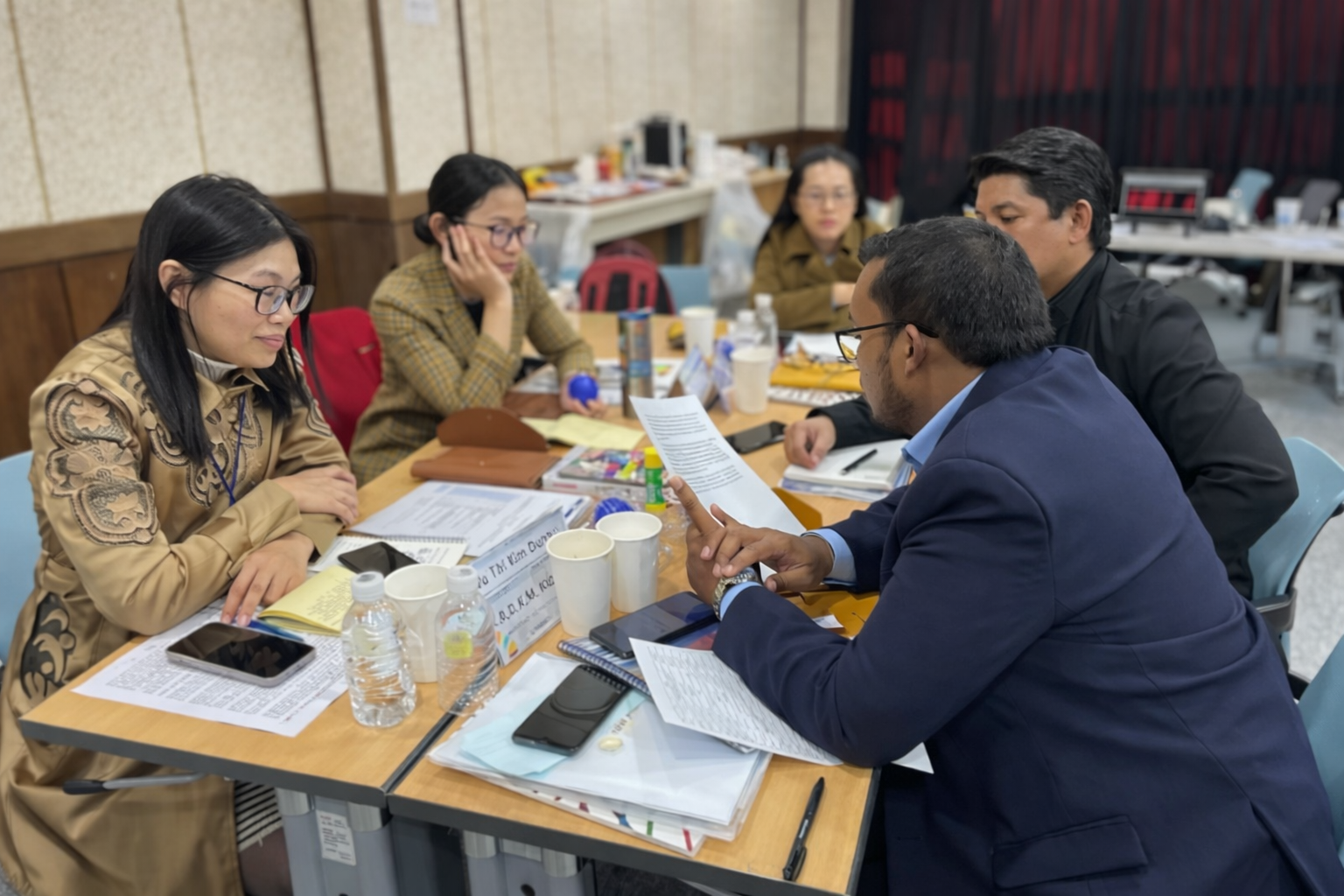
The Regional Support Office of the Bali Process (RSO) works to strengthen cooperation across Member States to translate ambitions into action and real-world impact – through knowledge transfer, capacity-building and the sharing of information and best practice.
The RSO welcomes collaboration and new project ideas from Member States, particularly from law enforcement officers, border and immigration officials, policymakers, judicial personnel, and counter-trafficking and migration practitioners. By prioritizing research and inquiry, the RSO helps Member States identify regional priorities related to irregular migration trends and develop strategies to strengthen regional awareness and expand the knowledge base.
The RSO brings practitioners across Member States together through a regular programme of training activities, events, workshops and roundtables, designed to help Member States stay ahead of new and emerging issues and to work collaboratively to develop responses and solutions.
About the RSO
Thematic Areas
The Regional Support Office (RSO) brings together practitioners from across Bali Process Member States to strengthen responses to people smuggling, trafficking in persons, and related transnational crime. Through training, workshops, events, and roundtables, the RSO supports improved border and migration management and enhances protection for vulnerable people, promoting a whole-of-government approach under the Bali Process.
Working closely with Member States and Bali Process Working Groups, the RSO develops practical resources, including guides, policy papers, thematic briefs, and training materials. It also fosters regional collaboration by welcoming ideas and proposals from Member States, stakeholders, and practitioners.
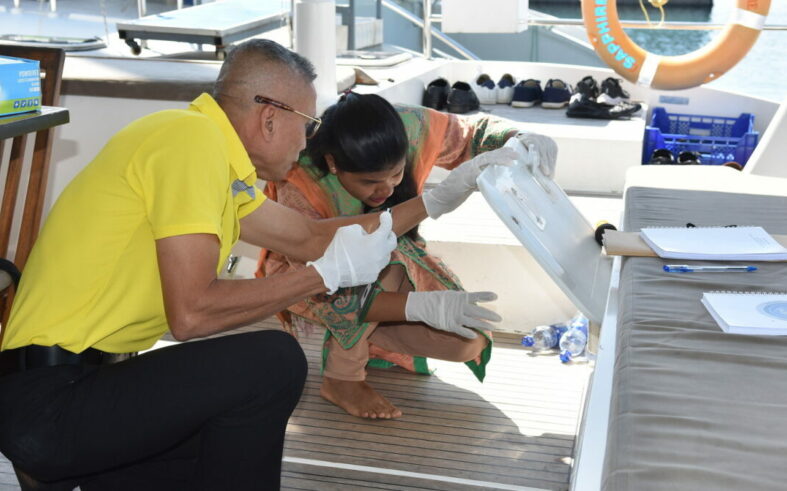
Governance, Monitoring and Evaluation
The RSO operates with strategic guidance from the Bali Process Senior Official Co-Chairs, and Senior Officials in the Governments of Australia and Indonesia. Day to day operations are overseen by two RSO Co-Managers from the Australian and Indonesian Governments.
The RSO applies a continuous cycle of monitoring, evaluation, and learning through a formal reporting framework. This approach clarifies objectives, gathers critical data to assess effectiveness, and tracks progress toward impact goals. By measuring outcomes and capturing lessons learned, the RSO ensures openness, accountability, and meaningful progress across its activities.
To maintain transparency and engagement, the RSO publishes a Biannual Strategic Plan and Work Plan, an Annual Impact Report, Monthly Reports, a quarterly newsletter, and a six-monthly narrative finance report. The RSO Co-Managers also report twice a year to the Bali Process Co-Chairs and provide updates to the Steering Group, Ad Hoc Group, and the full Bali Process membership at Senior Officials’ Meetings and Ministerial Conferences.

David Scott, RSO Co-Manager (Australia) and Sukmo Yuwono, RSO Co-Manager (Indonesia)
Operational Capacity Building and Training
The Regional Support Office (RSO) works with Bali Process Member States to strengthen coordinated regional responses to trafficking in persons and people smuggling.
Through training, research, policy support, and regional collaboration, the RSO supports governments and practitioners to turn knowledge into action. All activities are guided by a victim-centred and gender-sensitive approach.
RSO programmes build practical, operational capacity to investigate and prosecute cases, protect victims and vulnerable groups, and achieve sustainable, long-term impact. The Capability Development Approach integrates education, operational training, and institutional support, connecting policy, research, and practice to drive meaningful change.
The RSO also fosters ongoing collaboration through its Alumni Network, partnerships with law enforcement and regional organisations, and the use of Return to Work Action Plans that help translate training into measurable results.
To deliver its work, the RSO partners with a range of delivery partners, including law enforcement agencies across the Bali Process membership, Bali Process Member and Observer Organisations, and regional partners.
